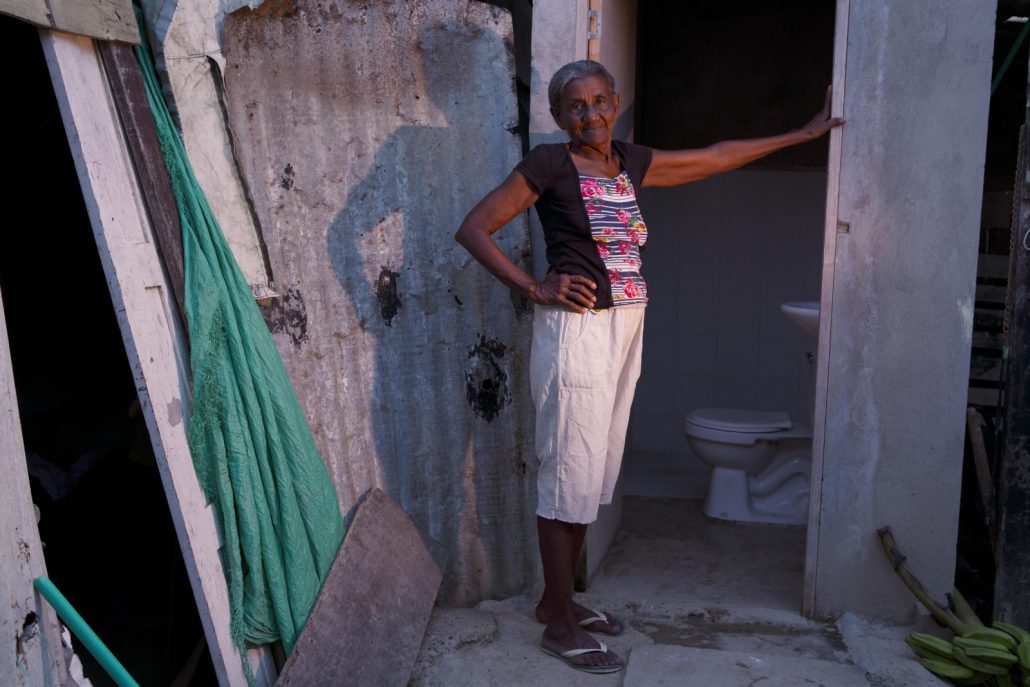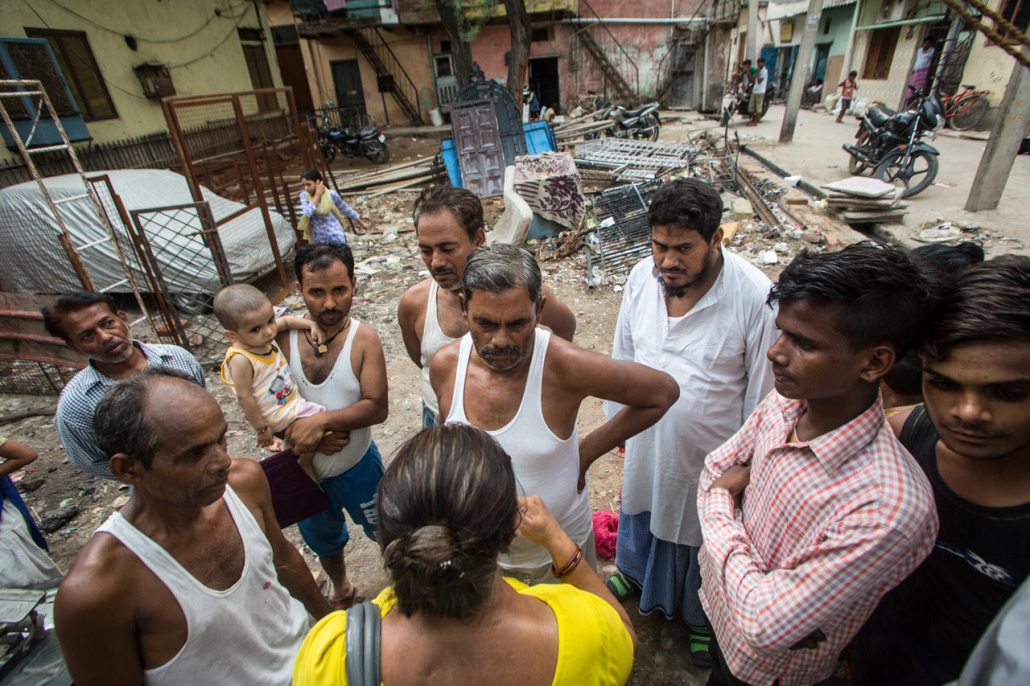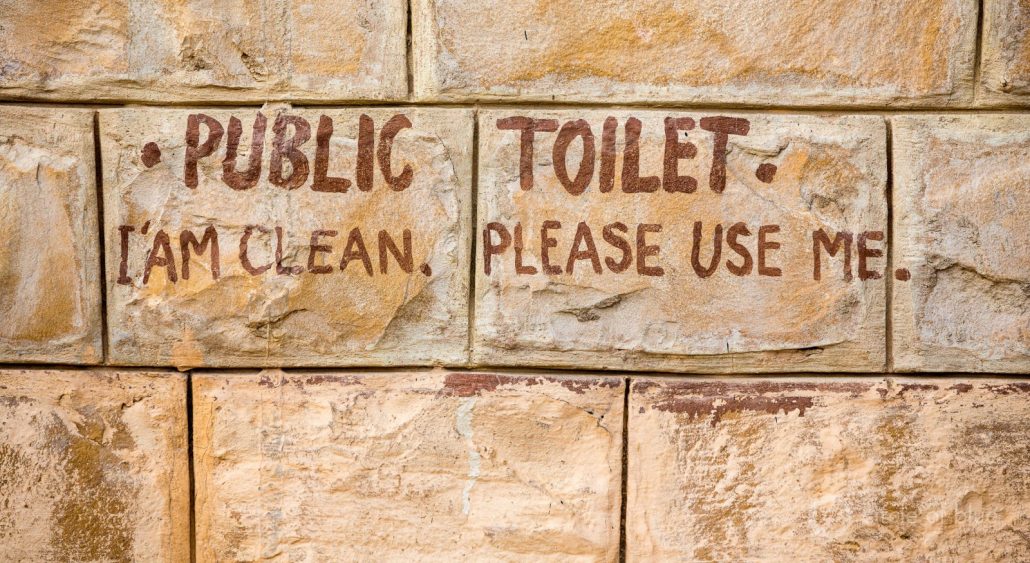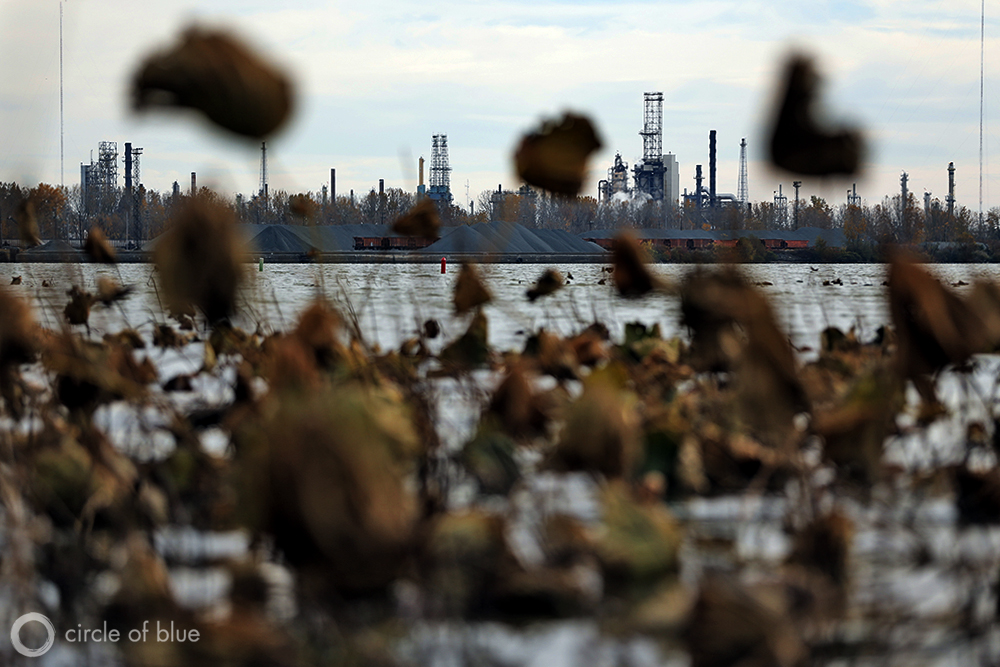A Water-Sensitive Approach for Cities to Tackle the Global Sanitation Crisis

© J. Carl Ganter / Circle of Blue.org
Opinion Piece
Benedito Braga, President, World Water Council
Today, World Toilet Day, is about inspiring action to tackle the global sanitation crisis. Around the world 4.5 billion people live without a safe toilet, and 892 million practice open defecation. The consequences of exposure to human feces on this scale are devastating for public health, living and working conditions, nutrition, education and economic productivity across the world.
For the first time in history, more than half of the world’s population live in towns and cities. When rapid urbanization outpaces formal planning, new city dwellers risk living in overcrowded slums with inadequate, often non-existent, water and sanitation services.
This has a devastating impact on the environment, too. Cities use a huge volume of freshwater, and discharge a proportionally large volume of wastewater. According to a 2015 report by the World Health Organization and United Nations Children’s Fund, two-thirds of sewage from urban areas is discharged untreated into lakes, rivers and coastal waters.
The countries of the world have agreed to a 2030 Sustainable Development Goal on cities – SDG 11, to make cities inclusive, safe, resilient and sustainable. At the same time, another goal – SDG 6, to ensure availability and sustainable management of water and sanitation for all – is also essential to making progress on sustainable urbanization. Sanitation underpins efforts to advance sustainable development and build resilience in cities.

© World Water Council
Sustainable Sanitation
Urban authorities should grasp the significant opportunities of circular water management. Water can be treated effectively to reduce water losses, recycle wastewater and capture by-products for making into fertilizers, fuels, oil, animal feed or biochar. When this happens, wastewater becomes a valuable resource. There is less pollution and, as a consequence, more water is available. Water quality is fit-for-purpose, geared to how it will be used. Cities match supply to demand and recognize that the natural environment has a valid demand for water, too.
Switching the emphasis from sewers to much cheaper decentralized systems, fecal sludge management and container-based sanitation can halve costs. Calculating the value of the social and economic benefits of sanitation and paying that amount to service providers can attract entrepreneurs, new thinking and new solutions.
Such sound management practices are encouraged by integrated legislation and governance of water, robust rules and regulations transparently enforced, and cooperation between national and local authorities. Everyone stands to benefit: municipal utilities, businesses and non-governmental organizations large and small, and, of course, ordinary citizens.

Residents of a neighborhood in Delhi gather around the remains of community toilets where scavengers removed them for the metal pipe and to tap into the fresh water supply that had been used for flushing. (J. Carl Ganter/Circle of Blue)
Resilient sanitation
Risk planning reduces damage from water-related hazards and cuts the human and economic costs of disasters. Blue-green infrastructure to manage flooding, drought and water-borne diseases, combined with green spaces, creates new leisure opportunities and enhances urban aesthetics. Efficient use and reuse of water minimizes stress on adjacent ecosystems. Water-sensitive cities can thereby help to mitigate climate change and build resilience.
At the same time, reliable sanitation boosts urban economies – raising production and output, while lessening sickness caused by diarrheal diseases – and stimulates development, tourism and international trade. Circular water management itself creates business opportunities as it generates revenues and protects ecosystems.

© J. Carl Ganter / CircleofBlue.org
Sanitation for all
Around 60% of the global population – 4.5 billion people – either have no toilet at home or one that doesn’t safely manage excreta. Close to a billion of these are practicing open defecation, meaning that human feces, on a massive scale, are not being captured or treated. One-third of schools worldwide lack toilet facilities – a particular problem for girls during menstruation – and 900 million schoolchildren have no place to wash their hands.
In December 2016, world leaders adopted the New Urban Agenda, which sets a global standard for developing sustainable cities that create prosperity, foster cultural and social well-being, and protect the environment. Suitably, water and sanitation pervade this agenda. Such sweeping action is exactly what is needed; marginal gains will not come close to providing sanitation services for an extra 4.5 billion people by 2030, which is only 12 years away.
But no one group can achieve this agenda alone. On World Toilet Day we urge governments, municipalities, the private sector and civil society to play to each other’s strengths, to be bold and to embrace change. Rethinking sanitation is an opportunity to come together and work together towards resilient, sustainable cities – with a toilet for everyone.
Prof. Braga was elected to his first three-year mandate as President of the World Water Council in November 2012 and was reelected for a second term in November 2015. Before this, from 2006 to 2012, he served as Vice-President of the World Water Council and chaired the International Steering Committee (ISC) of the 6th and 7th editions of the World Water Forum in Marseille (France) and Daegu-Gyeongbuk (Korea). Prof. Braga is the author of 25 books and chapters of books.













Leave a Reply
Want to join the discussion?Feel free to contribute!